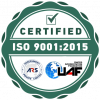Hi everybody, this is Nadine from Affordable Staff here with Rhiannon from Finance Women located in Southbank in Melbourne. Today we’ll be having a little bit of a chat around outsourcing and Rhiannon’s experience around outsourcing with her virtual assistant Nicole.
Summary of the video:
Nadine – Rhiannon would you like to tell us a little bit about Finance Women?
Rhiannon – Thanks, Nadine. So Finance Women is a financial planning, education and coaching service specifically for women. We focus on providing really good, trustworthy, down-to-earth practical advice, and for people who want to get financial independence and security.
Why did you decide to outsource?
Rhiannon – I guess for me, my business was growing and becoming more successful. And I was finding having to choose between working on the client business and looking more strategically and I found that it came to a crunch point where I had one lightbulb moment where I was looking at, I was trying to do a piece of work for a client and it had been about a week that I had stuggled to get to it. I sat down finally to do this piece of work and found that, unfortunately, I’d forgotten to send the critical piece of paperwork, which set me back down another week. And what I discovered at that point was that, if I had somebody whose sole job was to cross the i’s and dot the t’s or the other way around. Dot the i’s and cross the t’s. I would be able to deliver much better outcomes for my clients and I would also be able to do the business strategic work that I needed to do.
Nadine – Okay. So essentially, having somebody that can help you with a little bit of admin, can buy you the time to work on the return on investment tasks on your own business.
Rhiannon – Absolutely. Keeps me honest and I know that things are getting done properly.
Is trust a factor when you’re outsourcing?
Rhiannon – Absolutely. Trust in your virtual assistant is very, very critical. You need to make sure that they are reliable, that they will speak up when they don’t understand the tasks. But you also got a really good, warm an open relationship with them. That’s really, really important. I think trust also with the outsourcing company is absolutely critical.
It’s important that you know they’re going to be there when you need them and work with you when things go wrong, as things do from time to time, and that you’ve got people who really understand your business and prepared to work with you, which you have been doing.
Why did you choose us?
Rhiannon – Look, I interviewed possibly close to a dozen different outsourcing companies.
Nadine – I didn’t know that.
Rhiannon – Yeah, there you go. And at first, I wasn’t exactly sure what it was looking for. But I found I was really impressed by the time you talked to make things work for me. I had a lot of confidence in how you set things up and making sure that it was done well, but flexibly enough to meet my needs. Because I needed something that was slightly different perhaps from the average, though possibly everybody thinks they are unique, but you were quite happy to accommodate those things and that was really, very, very important to me.
Nadine – Yeah, I do believe that working with clients, it’s not a template, it should be customized to do, to have a virtual assistant work in the business, the way that the client would like their business to be worked in.
What limitations have you found in outsourcing?
Rhiannon – I think there’d be two, really. One is Nicole can’t make me a cup of coffee. She could order me one, but she can’t get me a cup of coffee. The second is the filing.
Nadine – Nobody likes that.
Rhiannon – No. So physical filing is obviously a challenge. However, while it’s painful, I think it’s been godsend not being able to do physical filing. It’s meant we have to become really innovative in how we’ve gone about how our processes.
Nadine – Paperless.
Rhiannon – Paperless. And anyone who’s tried to go paperless know how difficult that can be. But that physical separation has made us get really, really good at it. So we really harnessed technology, harnessed processes, and thought through how we do things to make sure that it is efficient and effective. And I think the outcomes are actually a lot better than if I had somebody physically with me. I think that record keeping is second to none without too much difficulty. It was just painful to begin with.
Nadine – It really does make you, make things more efficient with your digital filing and essentially, it just naturally reduces the need for manual filing at that point.
Rhiannon – Absolutely.
What does your industry think about outsourcing?
Rhiannon – I think we’ve warmed up to it over the years. When I first started in the industry, we were just starting to think about specializing in terms of different tasks, so financial planners traditionally had done everything. We’ve perhaps a secretary doing a piece. Then maybe a little over a decade ago, we started thinking about we should separate out the tasks. Admin versus client work versus technical support. And I think now I’m hearing amongst my peers and colleagues, increased preparedness to think about outsourcing in terms of that admin work.
I think particularly in the sole practitioner and small office space, I think it’s a fairly overwhelming thing to take on somebody full-time, because you don’t know if you’re going to need them 40 hours a week and that’s a big responsibility to train someone up. Whereas, the virtual assistant model, it can be a lot more flexible to the needs of your business and grow and adapt.
I know if I get really, really busy tomorrow, I can turn around and ask you to bring on two or three more people. And you have the systems and processes in place to help train them up and that initial investment in training is not lost. That’s priceless.
Nadine – In general, when you first set up with your first virtual assistant, that also makes you get your processes together. So once you’ve actually done it, you can just repeat with any new staff members that you put on. So it’s a little less painful.
Rhiannon – Absolutely.
What would you say to a business looking at outsourcing for the first time?
Rhiannon – Okay, I’ve got two pieces of advice. The first piece of advice is a piece of advice somebody gave me when I was just starting to understand that virtual assistance existed and the thing that he said to me was, don’t essentially jump with the first people you meet. Take the time to interview more than one provider. And I’ll be honest, I’m so glad I did. You guys were not the first ones that I picked up the phone to, and the first people I’m sure would have been fine, but finding that fit was really really important and helped me understand what I needed and wanted from the company.
And second thing I would say is, it’s hard when you first bring on a VA to understand what it is they could do for you and how they could work for you. So what I did was I wrote down a list of everything I had to do on a day-to-day basis and really challenged myself to say, what could somebody else do if I train them appropriately. And I gave a list of things that I thought somebody fairly new could do versus somebody fairly experienced, and that gave me scope to realize there was a lot of things that I could outsource if done and trained and monitored appropriately that would really help me.
Nadine – Yeah and with any staff member that you put on, whether that staff member’s here in Australia or in the Philippines like our staff, You still have to have some level of training in order to get them to do the work in your business that you require to be done in manner you require to be done. I think that’s some really good advice.
And just in general I think anyone looking at outsourcing and talking to multiple companies, make sure that the security is, you know, right because you must have a an in-country entity in order for a non-disclosure agreement or an employment agreement to be anywhere near enforceable. That’s definitely something that we do and always recommend doing that, along with all of the other security measures that we have in place.

